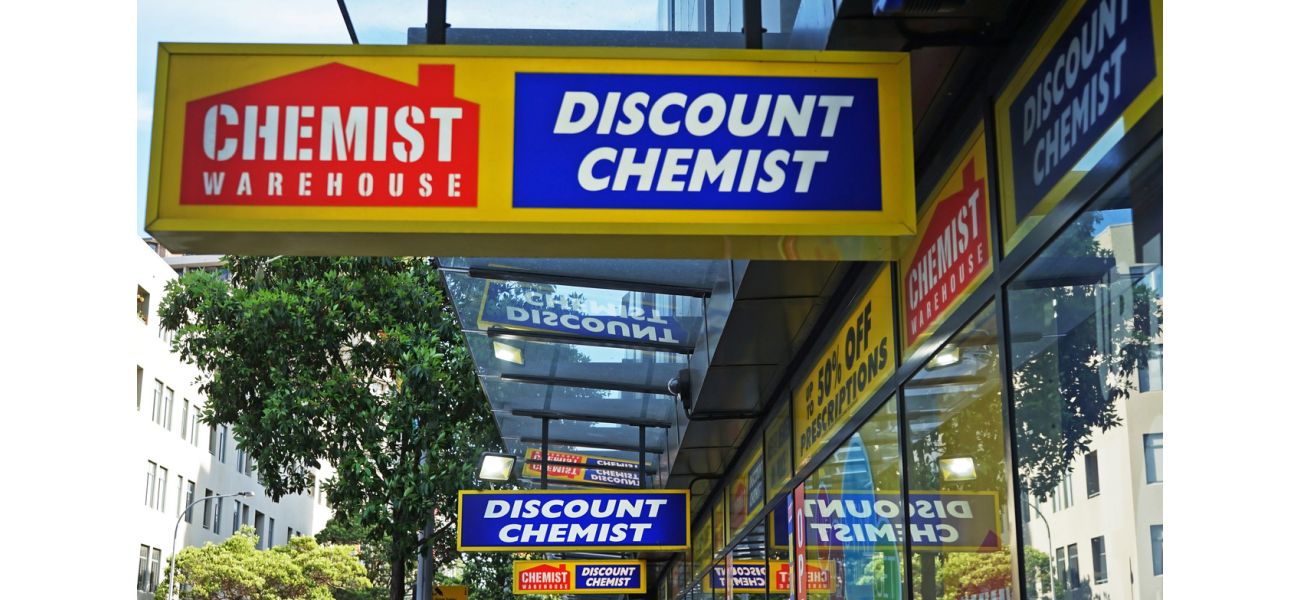Are name-brand drugs superior to generic versions?
Both options are equal in quality, but one is more affordable.
September 5th 2024.

When you go to the pharmacy to fill a prescription, you may have noticed that the pharmacist asks if you want the brand-name version of your medication or the generic version. With the cost of living constantly rising, many Australians are looking for ways to save money, and opting for the generic version of a medication is one way to do so. But you may be wondering, are generic drugs as safe and effective as their brand-name counterparts?
To understand what a generic medicine is, we can turn to the Australian Therapeutic Goods Administration. They define a generic medicine as an additional brand of an existing medicine that contains the same active ingredient as the original. In addition, generic brands must be "bioequivalent" to their brand-name counterparts, meaning that the same amount of active ingredient is absorbed by your body over the same period of time when taking the same dose of either version. This is demonstrated through a "bioavailability" study, which compares how the two versions are absorbed when taken by volunteers.
So, are generic drugs safe? The short answer is yes. In fact, they go through the same rigorous testing and approval process as brand-name drugs. Vice President of the Pharmaceutical Society of Australia's NSW Branch, Lily Pham, explains that "generic medicines require the same rigorous requirements to ensure that they meet the standard of safety and quality medicines as set by the TGA." So, if a generic version of a medication has been approved by the TGA, it is considered safe.
But which medicine is better, generic or branded? Technically speaking, neither is "better" as generic medications are required to be bioequivalent to their branded counterparts. However, from a financial standpoint, generic options tend to be more affordable. For example, a pack of 20 Panadol Tablets costs $4.50 at Coles, while a 20-pack of the Coles-brand Paracetamol Caplets are just $0.80. Both contain the same amount of the active ingredient, paracetamol, but the brand-name version is significantly more expensive.
You may be wondering if there are any differences between generic and brand-name medications. While the active ingredient is the same, there can be variations in the inactive ingredients or "excipients" included in each version. Pham explains that these inactive ingredients do not affect how well the medicine works, but they may affect the taste, color, dispersibility, or crushability of the medication.
One potential disadvantage of using a generic version of a medication is if it includes inactive ingredients that don't suit you. Pham advises that individuals with allergies, intolerances, or specific dietary or religious requirements should take these into consideration when selecting a brand or formula. For example, a person who is lactose intolerant may need to avoid a medication that contains lactose as an inactive ingredient.
You may be wondering why brand-name drugs are often more expensive than their generic counterparts. This is because the companies that produce brand-name drugs often invest more money into the discovery, development, and marketing of the drug. These costs are then reflected in the price consumers pay for the medication.
If you are currently taking a brand-name medication and are considering switching to the generic version, it is generally safe to do so. However, it is always best to discuss any potential effects with your pharmacist or doctor first. They can take into account any allergies, intolerances, or dietary and religious requirements you may have and suggest a generic brand or formula that will work for you.
You may have noticed that some medications are better known by their brand-name rather than their generic name. This is often because the brand-name version was the first one introduced to the market and has become synonymous with the active ingredient. For example, most Australians refer to any medication containing paracetamol as "Panadol," even though that is just one brand-name of the medication. Pham also adds that brand names are often easier to remember and pronounce.
In conclusion, while there may be some differences between generic and brand-name medications, they are generally considered to be equally safe and effective. Generic drugs go through the same rigorous testing and approval process as brand-name drugs and can offer a more affordable option for consumers. Ultimately, the decision between generic or branded medication is up to personal preference and affordability.
To understand what a generic medicine is, we can turn to the Australian Therapeutic Goods Administration. They define a generic medicine as an additional brand of an existing medicine that contains the same active ingredient as the original. In addition, generic brands must be "bioequivalent" to their brand-name counterparts, meaning that the same amount of active ingredient is absorbed by your body over the same period of time when taking the same dose of either version. This is demonstrated through a "bioavailability" study, which compares how the two versions are absorbed when taken by volunteers.
So, are generic drugs safe? The short answer is yes. In fact, they go through the same rigorous testing and approval process as brand-name drugs. Vice President of the Pharmaceutical Society of Australia's NSW Branch, Lily Pham, explains that "generic medicines require the same rigorous requirements to ensure that they meet the standard of safety and quality medicines as set by the TGA." So, if a generic version of a medication has been approved by the TGA, it is considered safe.
But which medicine is better, generic or branded? Technically speaking, neither is "better" as generic medications are required to be bioequivalent to their branded counterparts. However, from a financial standpoint, generic options tend to be more affordable. For example, a pack of 20 Panadol Tablets costs $4.50 at Coles, while a 20-pack of the Coles-brand Paracetamol Caplets are just $0.80. Both contain the same amount of the active ingredient, paracetamol, but the brand-name version is significantly more expensive.
You may be wondering if there are any differences between generic and brand-name medications. While the active ingredient is the same, there can be variations in the inactive ingredients or "excipients" included in each version. Pham explains that these inactive ingredients do not affect how well the medicine works, but they may affect the taste, color, dispersibility, or crushability of the medication.
One potential disadvantage of using a generic version of a medication is if it includes inactive ingredients that don't suit you. Pham advises that individuals with allergies, intolerances, or specific dietary or religious requirements should take these into consideration when selecting a brand or formula. For example, a person who is lactose intolerant may need to avoid a medication that contains lactose as an inactive ingredient.
You may be wondering why brand-name drugs are often more expensive than their generic counterparts. This is because the companies that produce brand-name drugs often invest more money into the discovery, development, and marketing of the drug. These costs are then reflected in the price consumers pay for the medication.
If you are currently taking a brand-name medication and are considering switching to the generic version, it is generally safe to do so. However, it is always best to discuss any potential effects with your pharmacist or doctor first. They can take into account any allergies, intolerances, or dietary and religious requirements you may have and suggest a generic brand or formula that will work for you.
You may have noticed that some medications are better known by their brand-name rather than their generic name. This is often because the brand-name version was the first one introduced to the market and has become synonymous with the active ingredient. For example, most Australians refer to any medication containing paracetamol as "Panadol," even though that is just one brand-name of the medication. Pham also adds that brand names are often easier to remember and pronounce.
In conclusion, while there may be some differences between generic and brand-name medications, they are generally considered to be equally safe and effective. Generic drugs go through the same rigorous testing and approval process as brand-name drugs and can offer a more affordable option for consumers. Ultimately, the decision between generic or branded medication is up to personal preference and affordability.
[This article has been trending online recently and has been generated with AI. Your feed is customized.]
[Generative AI is experimental.]
0
0
Submit Comment





